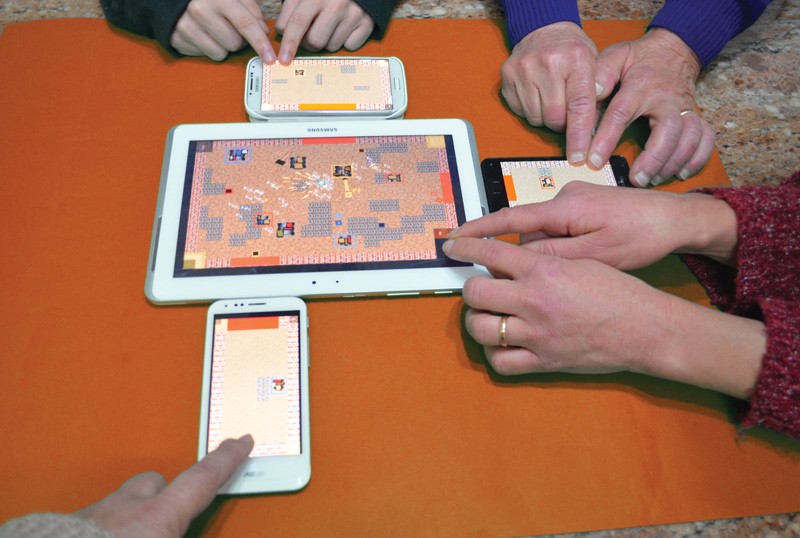Digital games need to keep players engaged. Since games are interactive media, achieving this goal means that game designers need to anticipate player actions to create a pre-designed experience. Traditionally, developers have achieved this by restricting player freedom to a strict set of actions thereby curating player experience and ensuring the fun factor. However, games are taking a different route with more users making their own content (User Generated Content, UGC) through extensive creativity tools which make it hard to predict player experience.

To overcome these challenges Vincent E. Farrugia (supervised by Prof. Georgios N. Yannakakis), merged game design and artificial intelligence (AI). He developed a software framework for handling player engagement in environments which feature user generated content and groups. The three pronged solution tackles problems during game production, playing the game itself, and making sure the framework is sustainable. To maintain engagement within groups he analysed data for a particular person within the group but also patterns common across the whole group. Farrugia created software tools, autonomous AI aids, and tools to test and support the framework.
The software framework is made up of inter-operating modules. Firstly, an engagement policy module allows designers to specify theories to express their vision of positive game engagement. Player modelling then shapes this backbone to specific player engagement needs. The module can autonomously learn from player creations as reactions to game stimuli. Individual and group manager modules use this mixture of expert knowledge, AI learnt data, and player game-play history to automatically adapt game content to solve player engagement problems. This procedural content generation (PCG) is tailored for a specific player and time.
The framework’s abilities were showcased in a digital game also developed by Farrugia. Various technologies were incorporated to encourage player creativity in group sessions and to enhance networking. The setup also allowed the AI to quickly learn from each player via parallelism. Initial testing used a simulated environment with software agents. Preliminary testing on real players followed. The simulation was through a personality system to validate the underlying algorithms under various conditions. The resulting diverse game-play styles provide suggestions for AI model improvement. Farrugia is enthusiastic about future work for this AI framework and giving developers better tools to allow player creativity to flourish while maintaining positive game-play experiences.
This research was performed as part of a Master of Science degree at the Institute of Digital Games, University of Malta. It was partly funded by the Strategic Educational Pathways Scholarship (Malta), which is part-financed by the European Union—European Social Fund (ESF) under Operational Programme II—Cohesion Policy 2007—2013, ‘Empowering People for More Jobs and a Better Quality of Life’.





Comments are closed for this article!